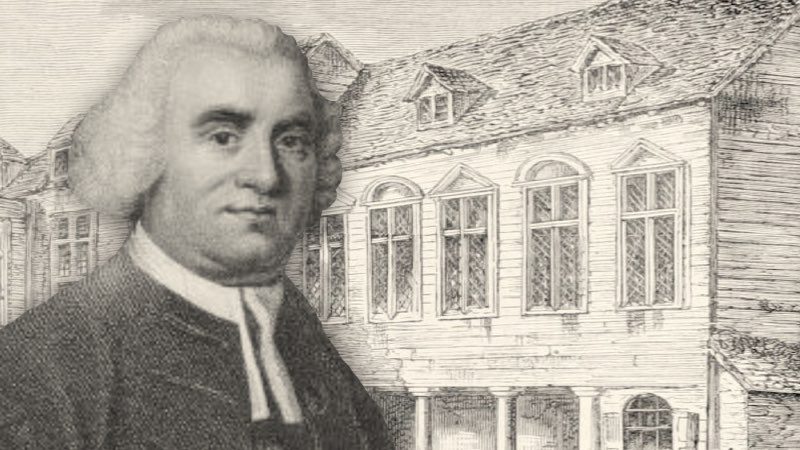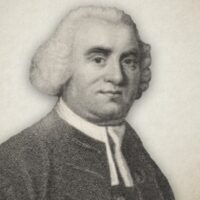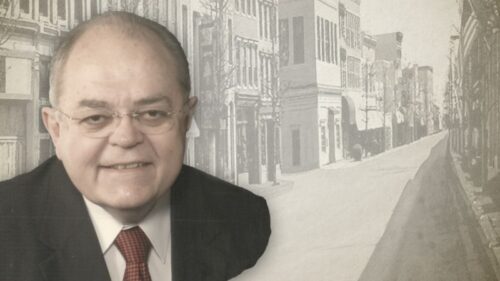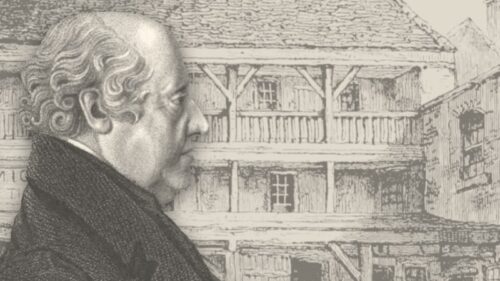
The Life And Testimony Of John MacGowan
William Rushton:
Mr. John MacGowan, known to the world as the author of ‘Dialogues of Devils,’ and other ingenious works, was a Baptist minister, and pastor of the church meeting in Devonshire-square, London. In the early part of his life he was in connection with the Wesleyan Methodists, but after his mind was enlightened to see the glory of sovereign grace, he zealously and publicly preached all those important truths which the Particular Baptists at that time steadily maintained.
[Mr. Macgowan’s views of the distinguishing doctrines of the gospel may be collected from the following pathetic lines, which he composed on the death of Dr. Gill. I quote them with much approbation, excepting the allusion to Elijah and Elisha, which appears to savour too much of the legal dispensation. Dr. Gill was worthy of all the love and esteem which his brethren manifested towards him, but he should not be regarded in any other character than a faithful and beloved brother. Those who are of the truth, acknowledge no leader but Christ himself. Few men understood this principle better than Mr. MacGowan; but being a young man when Dr. Gill died, and having lost a venerable friend, whom he loved exceedingly for the truth’s sake, and from whom he had derived great spiritual advantage, the ardor of his mind led him to compare his situation with that of Elisha, when his aged companion was transported to heaven; so that he gave vent to the feelings of his soul in the following verses:“Sad was the day, to young Elisha sad,
When Great Elijah from his head was taken;
Not less to me, O Gill! thy head now laid,
And this my mansion now by thee forsaken.
Those days were precious, when the lure of truth
Unmixed, by thee proclaimed, our willing feet
Drew thither, and the genial dew of youth
Shed on our hearts, and made our joys complete.
But now thy pulpit’s dumb, thy voice no more
From thence proclaims illustrious truth divine;
Better employed on yonder blissful shore;
And here to mourn in solitude is mine.
Yet still methinks, I hear the solemn sound
Of sovereign love, as preached by thee of yore;
Of boundless heights and depths beyond profound,
Brimless and bottomless, without a shore.
O! the sweet theme! how hast my heart been warm’d
With holy gratitude to hear thee tell
Of grace foreknowing, grace selecting, arm’d
At all events to rescue me from hell!”]
To Mr. Reynolds, a sound minister, who succeeded Mr. Brine, we are indebted for the account of the dying testimony of Mr. Macgowan. “I frequently visited him,” says Mr. Reynolds, “in his last sickness, when he took occasion as opportunity offered, of opening to me his whole heart.
“At one time he was in great darkness of soul, and lamented exceedingly the withdrawal of the presence of God. Two things, he said, had deeply exercised his thoughts. The one was, how those heavy and complicated afflictions which God had seen fit to lay upon him could work so as to promote his real good. And the other was, that God, his best friend, should keep at a distance from his soul, when he knew how much his mind was distressed for the light of his countenance. ‘O!’ said he, turning to me, and speaking with great earnestness, ‘My soul longeth and panteth for God, for the living God; his love visits would cheer my soul, and make this heavy affliction sit light upon me. The wonted presence of Jesus, my Redeemer, I cannot do without. I trust he will turn to me soon, yea, I know he will in his own time; for he knows how much I need the influence of his grace!’ In this conversation he often mentioned the depravity of his nature, and what a burden he found it. ‘My heart,’ said he, ‘is more and more vile. Every day I have such humiliating views of heart corruption as weighs me down. I wonder whether any of the Lord’s people see things in the same light that I do.’ And then turning to me he said, ‘And do you find it so brother?’ On my answering him in the affirmative, he replied, ‘am glad of that.’
“The next time, which was the last of my conversing with him, I found him in a sweet and heavenly frame; his countenance indicated the serenity of his mind. On my entering the room, he exclaimed, ‘O, my dear brother, how rejoiced am I to see you! Sit down, and hear of the loving- kindness of my God. You see me as ill as I can be whilst in this world, and as well as I can be whilst in the body. Methinks I have as much of heaven as I can hold.’ Then tears of joy, like a river flowed from his eyes; and his inward plausible frame interrupted his speech for a time. He broke silence with saying, ‘The work will soon be over; but death to me has nothing terrific in it. I have not an anxious thought. The will of God and my will are one. ’Tis all right, yet mysterious. You cannot conceive the pleasure I feel in this reflection; viz., that I have not shunned to declare (according to the best of my light and ability), the whole counsel of God. I can die on the doctrines that I have preached. They are true; I find them so. Go on to preach the gospel of Christ, and mind not what the world may say of you.’ All the while I sat silent; and rising to take my leave, fearing he would spend his strength too much, he immediately took me by the hand, and weeping over each other, we wished mutual blessings. On parting, he said, ‘My dear brother, farewell; I shall see you no more.’
“Thus I left my much esteemed friend and brother; and the next news I heard from his was, that on Saturday evening his immortal spirit left the body, to go to the world of light and bliss, and keep an eternal Sabbath with God, angels and saints.
“Mr. Macgowan departed this life, November 25, 1780 in the 55th year of his age.”
John MacGowan (1726-1780) was a Particular Baptist preacher and author. In 1766, he was appointed pastor of the church meeting at Devonshire-square, London (a chapel that was opened by William Kiffin in 1687).






